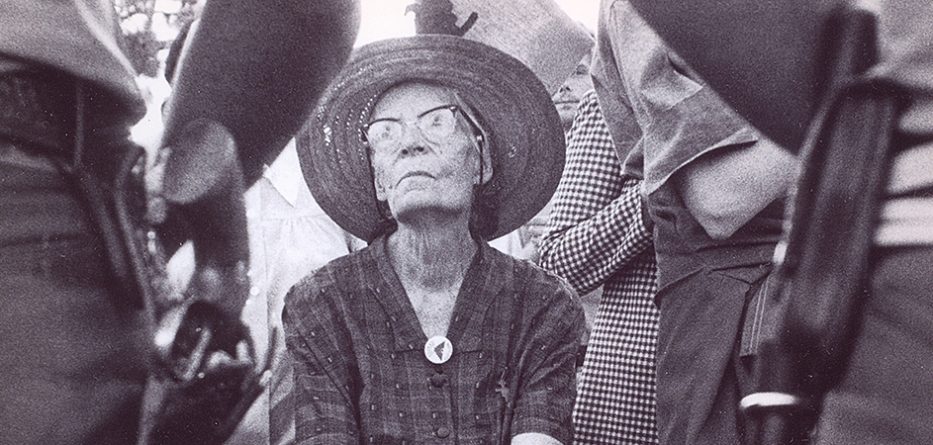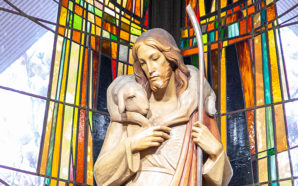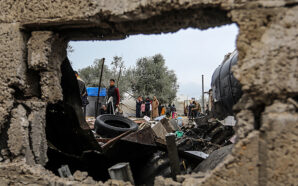‘Let us enter into our restless flawed hearts and seek the one who alone quenches our “hunger and thirst”.’
Jesus claims in the Sermon on the Mount that those who hunger and thirst for righteousness will be filled. This is certainly no excuse for quietism and inaction on our part! There is nothing ‘blessed’ about dying of lack of food and water! Too many people, especially children, are literally dying of hunger and thirst this very day. To somehow ‘spiritualise’ their agony would be a shocking mockery of the Beatitudes.
As Christians we have a grave responsibility to ensure the physical hunger of all people is met. Caritas’ Project Compassion and the great resource of our tradition of Catholic social teaching need to be acted upon to ensure that the injustice of starvation is eliminated in our lifetimes. It is possible!
That acknowledged, in this Beatitude Jesus is also speaking on another level—about human drives, desires, passions and appetites. Other types of hunger and thirst need to be dealt with as they are also crucial issues for our full liberation in Christ.
Gerald May in his marvellous book, Addiction and Grace, reflected:
After 20 years of listening to the yearnings of people’s hearts, I am convinced that all human beings have an inborn desire for God … Some of us have repressed this desire, burying it beneath so many other interests that we are completely unaware of it. Or we may experience it in different ways—as longing for wholeness, completion, or fulfilment. Regardless of how we describe it, it is a longing for love.
Yes, in addition to our physical need for food and drink, there is a ‘God-shaped hole’ of empty desire within each of us. It resides in the deep centre of ourselves that we call the ‘heart’. We are born with it, it is never completely satisfied, and it never dies. We are often unaware of it, but the desire is always awake.
We are indeed blessed if we can also recognise this ‘thirst’ and ‘hunger’ within us all. It is not a sign that something is ‘wrong’ but the dynamic presence of the Spirit of Jesus within us!
Yet, we all know how deeply we human beings resist the Spirit. Sometimes our inner ache, our loneliness, our ‘desire’—our thirsts and hungers—become too much for us and we try to bury them with excessive work. We can try to run from them for years, even decades, but they keep reappearing in unguarded moments.
Usually our defence is to try to numb these desires with ‘idols’ and false attachments in our souls. These days we tend to call them ‘addictions’.
At the funeral recently of a famous New York Times journalist who struggled with such addictions, Jesuit Fr James Martin put it this way:
All of us are imperfect, flawed, even sinful. And more to the point, all of us have been addicted in our own ways to different things. If it’s not alcohol, it may be status. If it’s not drugs, it may be power. If it’s not crack, it may be money. But we are also, all of us beloved children of God, loved by God in spite of our failings—maybe loved even more for them, much as a parent loves a child more intensely when he or she is in trouble.
As Dorothy Day’s life taught us, action to eliminate the unjust hunger of the world’s poor must be a constant concern as we celebrate the Eucharist. At the same time, let us enter into our restless flawed hearts and seek the One who alone can quench our ‘hunger and thirst’.
Mary Oliver’s poem captures that inner challenge for all of us on the road to conversion from addictions to real life in Jesus.
THIRST
Another morning and I wake with thirst
for the goodness I do not have. I walk
out to the pond and all the way God has
given us such beautiful lessons. Oh Lord,
I was never a quick scholar but sulked
and hunched over my books past the hour
and the bell; grant me, in your mercy,
a little more time. Love for the earth
and love for you are having such a long
conversation in my heart. Who knows what
will finally happen or where I will be sent,
yet already I have given a great many things
away, expecting to be told to pack nothing,
except the prayers which, with this thirst,
I am slowly learning.
—Mary Oliver, Thirst, Beacon Press, Boston, 2006
This article is part of a series of reflections entitled Blessed Are You: Meditations on the Beatitudes & Daily Life by Br Mark O’Connor FMS.
Br Mark O’Connor FMS is the Vicar for Communications in the Diocese of Parramatta.








